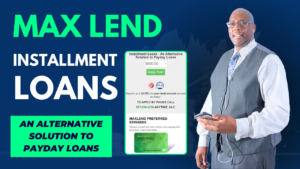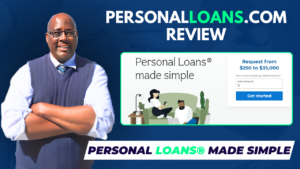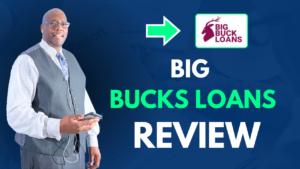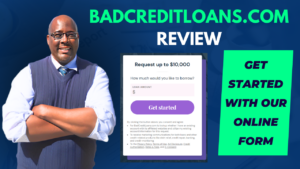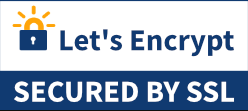If you need money and you're on Social Security or unemployment, getting a loan can feel like a dead end—especially if you have bad credit. But it’s not impossible.
There are lenders and options out there, but they come with conditions you need to understand. High interest rates. State restrictions.
Credit checks that don’t use traditional bureaus. If you're in a tight spot financially, here’s what you should know about how to get a loan on Social Security, unemployment, or with poor credit.
1. Before You Borrow, Check for Free Money
Before diving into high-interest loans, look into whether there's money out there already owed to you.
Unclaimed.org is a government-run site where you can search for unclaimed property or money in your name. This could include refunds, wages, lawsuit settlements, or other types of forgotten or unpaid funds.
Just enter your name and previous addresses. You might be surprised by what you find, especially if you’ve moved states.
U.S. Department of Labor – Unpaid Wages is another site to check. If you left a job and never got your last paycheck or a bonus, there’s a chance those funds are still owed.
You can search by employer and state, then enter your info to see if there's money to claim.
These options cost nothing to try. Some people even start small businesses helping others claim these funds—for a fee. You don’t need to pay someone. Do it yourself and help your family too.
2. Temporarily Increase Take-Home Pay by Filing “Exempt”
If you’re working and normally get a refund when you file taxes, you might be eligible to file as tax exempt for a few months. This means more money in your paycheck now. The IRS allows this if:
- You had a right to a refund in the previous tax year.
- You expect to receive a refund this year.
Only do this if you’re confident about your tax situation. It’s not tax advice—talk to a professional if you’re unsure. But it’s a legal way to get more money upfront to cover bills without borrowing.
3. Lenders Who Work with Social Security and Unemployed Borrowers
There are lenders who don’t mind if your income is from Social Security benefits, disability, or unemployment. They don’t focus only on your credit score. Here are three platforms you can look at.
First Cash Advance
This one offers three kinds of loans:
- Payday loans ($50 to $1,000)
- Installment loans ($1,000 to $5,000, paid over 2 to 24 months)
- Personal loans ($5,000 to $15,000, with terms up to 5 years)
Even if you’re on Social Security or unemployment, you can qualify. But your application info has to match up. If your address doesn’t match the credit records or financial data sources they check, you might get denied.
They don’t base decisions only on your credit score. They use alternative data from financial credit bureaus like Teletrack, FactorTrust, Clarity, and DataX.
These aren't the traditional credit bureaus (like Equifax, Experian, or TransUnion), but they collect loan-related data—like whether you've paid back short-term loans before, or if you've defaulted.
Make sure the personal information on your application is accurate and matches these reports. If you’ve moved, update your address everywhere.
LendNation
They offer loans up to $10,000 and operate in about a dozen states. They do work with people who are unemployed, as long as you’re receiving unemployment benefits and have an active checking account.
They also accept people with bad credit, and again, they use alternative credit bureaus to screen applications. You still need to prove income and identity. If you’re not in one of the states they serve, don’t waste time applying.
Viva Loans
This lender offers loans up to $15,000, and they also work with people who have poor credit or are on government benefits. Like the others, the key is:
- Being in a state they operate in
- Having proof of income (from benefits or unemployment)
- Having a checking account with active deposits
- Being able to prove your identity and current address
Just like the other platforms, they don’t do a hard credit pull. That means your score won’t be affected by applying.
4. Understand the Real Cost
Even though these lenders work with people in tough financial situations, there’s a trade-off: very high interest rates. You’ll want to compare offers and avoid borrowing more than you can reasonably repay. A $500 payday loan can easily turn into $1,000 or more if you miss payments or roll it over.
These are last-resort options, not long-term financial solutions.
Also, don’t apply to lenders who don’t operate in your state. You’ll be rejected automatically. Each lender lists the states they serve—check first.
5. What Financial Credit Bureaus Do Lenders Use?
Most people only know the big three credit bureaus, but these types of lenders often use alternative data bureaus, which track short-term, payday, and installment loans:
- Teletrack – owned by Equifax
- FactorTrust – owned by TransUnion
- Clarity – owned by Experian
- DataX – also owned by Equifax
You can request your own reports from these bureaus and even freeze them if you don’t want your data shared. But if you’re applying for a loan, make sure the freezes are lifted temporarily, or your application could be denied.
6. Final Tips
- Always check that your application info matches your credit file, especially addresses.
- Use your current checking account, not one you rarely use.
- Don’t apply for multiple loans at once—it can raise red flags.
- Review the loan terms carefully before signing. Understand the APR, fees, and repayment schedule.


